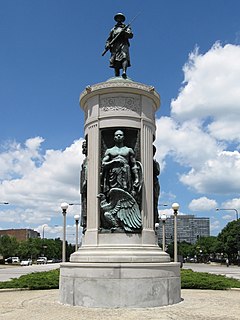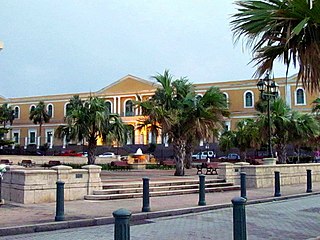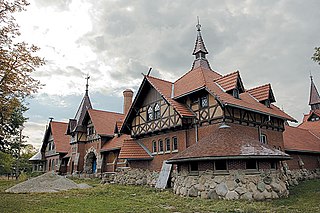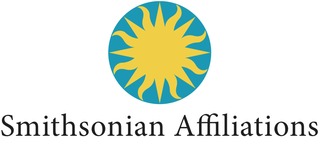
Humboldt Park, one of 77 designated community areas, is on the West Side of Chicago, Illinois. The Humboldt Park neighborhood is known for its dynamic social and ethnic demographic change over the years. The Puerto Rican community has identified strongly with the area since the 1970s; Humboldt Park is also the name of a 207-acre (0.8 km²) park adjacent to the community area.

West Town, located in Chicago, in the U.S. state of Illinois, northwest of the Loop, on Chicago's West Side is one of 77 officially designated Chicago community areas. Much of this area was historically part of the city's Polish Downtown, and its name may refer to Western Avenue, which was the city's western boundary at the time of West Town's settlement, but more likely was a convenient abstraction by the creators of Chicago's community areas. Then, as now, West Town was a collection of several distinct neighborhoods. It was the most populous of the community areas from their creation until it was surpassed by Near West Side in the 1960s. The boundaries of the community area are the Chicago River to the east, the Union Pacific railroad tracks to the south, the former railroad tracks on Bloomingdale Avenue to the North, and an irregular western border to the west that includes the city park called Humboldt Park. Humboldt Park is also the name of the community area to West Town's west, Logan Square is to the north, Near North Side to the east, and Near West Side to the south. Currently, as well as historically, the collection of neighborhoods in West Town along with the neighborhoods of Bucktown and the eastern portion of Logan Square have been referred to by media as the Near Northwest Side.

El Museo del Barrio, often known simply as El Museo, is a museum at 1230 Fifth Avenue in Upper Manhattan, New York City. It is located near the northern end of Fifth Avenue's Museum Mile, immediately north of the Museum of the City of New York. Founded in 1969, El Museo specializes in Latin American and Caribbean art, with an emphasis on works from Puerto Rico and the Puerto Rican community in New York City.
Chicago's demographics show that it is a large and ethnically diverse metropolis. It is the third largest city and metropolitan area in the United States by population, and the city was home to over 2.7 million people in 2020, accounting for over 25% of the population in the Chicago metropolitan area; home to approximately 9.6 million. The racial makeup of the city in 2010 was 45.3% white, 32% black, 5% Asian, and 3% from two or more races. The ethnic makeup of the population is 28% Hispanic and 72% belong to non Hispanic background. English is the primary language of the city, and Christianity accounts as the predominant faith.

The South Side is the area of Chicago lying south of the city's large Downtown area. Geographically, it is the largest of the three Sides of the city that radiate from downtown-the other Sides of the city being the North Side and the West Side.
The American Council for Polish Culture (ACPC) is a national non-profit, charitable, cultural and educational organization that serves as a network and body of national leadership among affiliated Polish-American cultural organizations throughout the United States.

Paseo Boricua (loosely translated as "Boricua is a section of Division Street in the Humboldt Park community of the West Side of Chicago, Illinois.
Chicago High School for the Arts (ChiArts) is a public four–year college preparatory visual and performing arts high school located in the Humboldt Park neighborhood in Chicago, Illinois, United States. Operated by the Chicago Public Schools district, The school opened for the 2009–10 school year.

The Institute of Puerto Rican Culture, or ICP, for short, is an institution of the Government of Puerto Rico responsible for the establishment of the cultural policies required in order to study, preserve, promote, enrich, and diffuse the cultural values of Puerto Rico. Since October 1992, its headquarters have been located at the site of the old colonial Spanish Welfare House in Old San Juan. The ICP was created by order of Law Number 89, signed June 21, 1955, and it started operating in November of that year. Its first Executive Director was Dr. Ricardo Alegría.
The Center for Traditional Music and Dance (CTMD) is a leading folk/traditional arts organization based in New York City. Originally established as the Balkan Arts Center in 1968, CTMD assists the city's ethnic and immigrant communities in maintaining their traditions and cultural heritage. CTMD has developed a range of programs that emphasize research, documentation, collaboration, presentation, and education to help advance its mission of cultural equity. Over the past four decades, CTMD’s programs have led to the creation of nationally renowned ensembles, folk arts festivals, and community-based cultural organizations. CTMD provides the public with a full calendar of events designed to showcase and promote the diversity of New York City's performing arts traditions.

Puerto Ricans in Chicago are people living in Chicago who have ancestral connections to the island of Puerto Rico. They have contributed to the economic, social and cultural well-being of Chicago for more than seventy years.
Arlene Dávila has contributed to the field of Latino/a Studies as an author and professor. She is the founding director of The Latinx Project, and has written eight books and many articles on issues ranging from depictions of public images of Latinos, marketing to Latinos, cultural politics in Puerto Rico, and Latinization of the United States. Her research focuses on race and ethnicity, media studies, and Puerto Rican national identities. She is a professor at New York University.
Culture Coast Chicago is a collection of artistically vibrant neighborhoods on the South Side of Chicago, Illinois, United States. Known for its high concentration of museums, music and theater ensembles, performance venues, cultural nonprofits, and arts education opportunities, the region spans from just south of McCormick Place to the South Shore Cultural Center and is bordered by Lake Michigan to the east and the Dan Ryan Expressway to the west.
The National Medal for Museum and Library Service is an award given annually by the Institute of Museum and Library Services (IMLS) to American libraries and museums with outstanding service to their communities. The IMLS refers to the medal as "the nation’s highest honor conferred on museums and libraries for service to the community." The award is typically presented by the First Lady of the United States.

The National Museum of Puerto Rican Arts and Culture is a museum in Chicago dedicated to interpreting the arts and culture of the Puerto Rican people and of the Puerto Ricans in Chicago. Founded in 2001, it is housed in the historic landmark Humboldt Park stables and receptory, near the Paseo Boricua. It hosts visual arts exhibitions, community education, and festivals. Its exhibitions have featured the artwork of Osvaldo Budet, Elizam Escobar, Antonio Martorell, Ramon Frade Leon, and Lizette Cruz, in addition to local Chicago or Puerto Rican artists. The Institute also sponsors music events including an annual Navi-Jazz performance, described as a "fusion of Puerto Rican and African American musical elements."

Smithsonian Affiliations is a division of the Smithsonian Institution that establishes long-term partnerships with non-Smithsonian museums and educational and cultural organizations, in order to share collections, exhibitions and educational strategies and conduct joint research.
Indira Freitas Johnson is an artist and nonviolence educator.

The West Side is one of the three major sections of the city of Chicago in Cook County, Illinois, along with the North Side and the South Side. The West Side consists of communities that are of historical, cultural, and ideological importance to the history and development of Chicago. On the flag of Chicago, the West Side is represented by the central white stripe.
Bibiana Suárez is a Latin American artist from Puerto Rico. She specializes in painting with mixed media. Her work reflects the immigrant experience of a search for self-identification and the problems of living on the edge between two cultures. Suárez's art pieces are representative of culture, social, and political dynamics.











